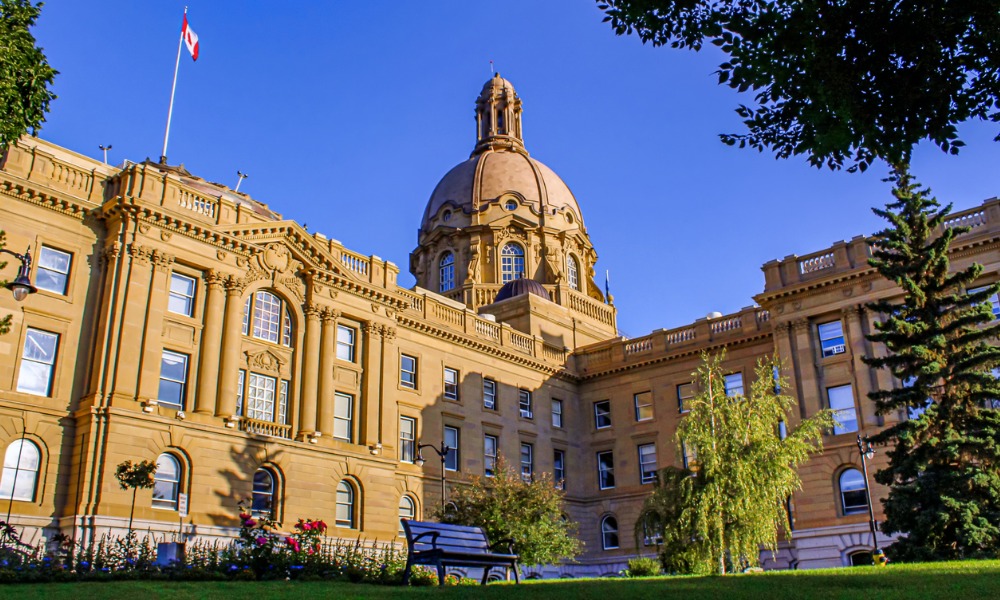
Province's last-minute ultimatum sacrifices organization's independence, says Legal Aid Alberta

Legal Aid Alberta says it will be forced to cease operations on July 9, after the Alberta government refused to sign a new governance agreement and delivered a proposal that legal groups say would sacrifice the independence of legal aid delivery.
Since 2002, LAA has been governed by a three-party agreement between the Legal Aid Society, the Alberta Government, and the Law Society of Alberta. The governance agreement expired on June 30, and over the last year, the parties have negotiated its renewal.
According to LAA board chair Ryan Callioux, after cancelling a meeting at which the parties were set to finalize a few unresolved issues, Deputy Minister of Justice of Alberta’s governing United Conservative Party, Malcolm Lavoie told LAA that it would not renew the agreement and offered a new framework for legal aid funding. On June 27, Lavoie gave LAA a deadline of July 1 to decide whether to accept the proposal and sign a new grant agreement. Callioux described these events in a message sent to LAA employees, roster lawyers, and stakeholders.
The parties to the new agreement would be the Minister of Justice and the Legal Aid Society. The Law Society of Alberta would not be a part of the arrangement. According to Callioux, the agreement would encompass a one-year term, the province could terminate it without cause with 30 days’ written notice, and the justice minister would have the discretion to unilaterally withhold and adjust funding. Callioux said LAA would be “subject to onerous and significant financial reporting requirements” and “strict restrictions on use of the funds, including with respect to entering into contracts of employment and contracts with third party service providers.”
Delivered three days before the deadline on the Thursday before a long weekend, the province’s proposal was “untenable,” and the LAA board lacked adequate time to assess and respond, said Callioux. The board told Justice Minister Mickey Amery that his proposal was unreasonable and asked for an urgent explanation of the government’s position. The province has also failed to deliver funding that was due April 1.
Callioux said the province’s decision erodes LAA’s independence and ability to deliver services. Without a governance agreement in place, LAA will stop issuing certificates at 4:30 pm on July 9. He called on the province to return to the negotiating table urgently and agree to a new governance agreement that ensures legal aid’s independence.
The office of Alberta Justice Minister Mickey Amery did not respond to a request for comment.
Provinces have responsibility for legal aid administration, but the federal government is a partner in funding legal aid for criminal, immigration, and refugee matters.
“All governments have a responsibility to ensure access to justice is equitable,” says Chantalle Aubertin, spokesperson for federal Justice Minister and Attorney General Arif Virani.
“Effectively cutting off legal aid, as may be the case in Alberta, undermines a fundamental Canadian value,” she says.
A joint statement from the Calgary-based Criminal Defence Lawyers Association, the Edmonton-based Criminal Trial Lawyers Association, the Southern Alberta Defence Lawyers’ Association, and the Red Deer Criminal Lawyers Association warned of an “insurmountable crisis” if the province fails to renew the legal aid governance agreement. The groups said they were “shocked and appalled” to hear that the province delivered a “last-minute ultimatum that would fundamentally change who controlled the delivery of legal aid services.”
Paul Moreau, an Edmonton criminal defence lawyer and president of the Criminal Trial Lawyers Association, says the LSA's involvement in the governance agreement ensured that legal aid lawyers were independent. In most litigation, the government is a party, either as the prosecution in a criminal trial, the removal authority in an immigration matter, or the apprehension authority in a child welfare case.
“It's crucial that anyone facing that sort of litigation have a lawyer who is independent of government,” he says. “The independence of lawyers and the independence of the Legal Aid Society is a crucial feature to the constitutional validity of the whole process.”
If LAA shuts down, the immediate result will be “chaos” in first-appearance docket courts, says Moreau. Judges will adjourn cases where the accused lacks representation, and lawyers will withdraw from existing cases because their legal aid bill will not be paid. This will result in delay, and because of R. v. Jordan’s ceilings of 18 and 30 months for provincial and superior court cases, many accused people charged with serious crimes will be acquitted, he says.
“Seems odd for what is purportedly a law-and-order government.”
Under Alberta’s proposal, the province would have control over which legal aid cases would receive funding and which would not, says Moreau. For the provincial government of Premier Danielle Smith, “it's all about centralizing control,” he says.
“If you compare what is being done to lawyers, to what's being done to doctors, municipal government, teachers – there's a pattern that's discernible.”